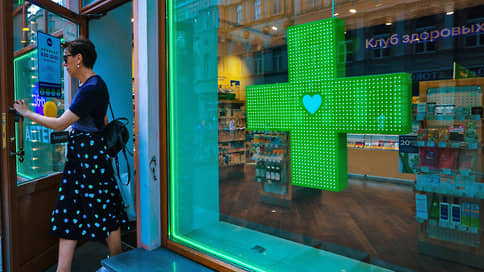Samples of the fatherland – Newspaper Kommersant No. 176 (7377) of 09/23/2022
[ad_1]

The State Duma may return to consideration of a bill that establishes the priority of using reference materials developed in Russia. Pharmaceutical manufacturers use such samples to control the quality of drug batches. Now most of the players continue to use the products of the US and European pharmacopoeias, imported through third countries. The current version of the bill allows the FBU, which is subordinate to the Ministry of Health, to monopolize the market, but it is possible that the document will change by the second reading.
The authorities are considering the introduction of prioritization of the use of reference materials registered by Russian state-owned enterprises over imported ones, sources told Kommersant in the pharmaceutical market. Such a bill was introduced by deputies Andrey Isaev, Alexander Petrov and ex-chairman of the Duma Committee on Health Protection Dmitry Morozov back in 2020. It enshrines the concept of a pharmacopoeial standard sample in the law “On the Circulation of Medicines” and provides that in the course of quality control, manufacturers, in the absence of Russian state samples, must use foreign pharmacopoeial products.
The amendments have not yet passed the first reading. But their consideration is included in the approximate program for November, follows from the information on the website of the State Duma. The Ministry of Industry and Trade told Kommersant that the bill is being prepared for consideration. The Ministry of Health did not respond to Kommersant’s request. The State Duma Health Committee declined to comment pending a response from the government.
The term “pharmacopoeia standard sample” was approved by the order of the Ministry of Health in 2020 on the formation of a metrological service, which is engaged in the creation of such samples. The FBU “National Center for Expertise of Medical Application” (NCESMP) subordinate to the Ministry of Health is responsible for this.
The current version of the bill excludes the possibility of using other categories of standard samples, including state ones, the Ministry of Industry and Trade indicated. They did not support the bill. This, according to the ministry, may lead to tightening of existing requirements and adversely affect the activities of manufacturers and developers of reference materials and pharmaceutical manufacturers. FBU “GILS and NP” and FGUP “Endopharm” controlled by the Ministry of Industry and Trade are working on the creation of state samples.
The NTSESMP expectedly supports the deputy’s initiative and considers it expedient to adopt the bill as soon as possible. Alexander Semyonov, president of Active Component, a manufacturer of substances, knows that the priority of using state samples developed in Russia is being considered.
In March, after the start of a special military operation in Ukraine, official deliveries of US and European pharmacopoeial reference materials to Russia were stopped. They were used by most Russian pharmaceutical manufacturers in daily practice. The Ministry of Industry and Trade decided to speed up the development of the Russian base: samples of vital drugs should be ready by the end of 2024.
NTsESMP, SID and NP and Endopharm received grants from the Agency for Technological Development in spring for the development of almost 250 reference materials for a total of 284 million rubles. A competition for 12 more samples will be held in November. Meanwhile, there were more than 100 such samples in the state register back in March, said Vladimir Pastukhov, director general of the agency. According to him, another 500 million rubles are to be allocated for 2023. to continue the program.
While Russian manufacturers use the supply of samples of the same foreign pharmacopoeias through third countries, market players say. Russian samples are not yet used very actively, despite their low cost compared to foreign ones, since the supply and sales system has not been debugged, Alexander Semenov explains. But for now, when replacing the used sample, it is necessary to make changes to the registration certificate for the drug, and this is expensive and labor-intensive — this can slow down the transition to Russian products, he points out. According to the Ministry of Industry and Trade, initiatives to simplify the procedures for replacing imported standards with domestic ones are being discussed.
[ad_2]
Source link





